


Who is a Jew? Survey on Religion and State
Written By: Dr. Ariel Finkelstein, Ayala Goldberg, Adv. Shlomit Ravitsky Tur-Paz
70% of Jewish Israelis do not accept patrilineal descent and therefore do not consider those born to a Jewish father and non-Jewish mother to be Jewish. The new IDI survey reveals what Israelis really think on matters of religion and state
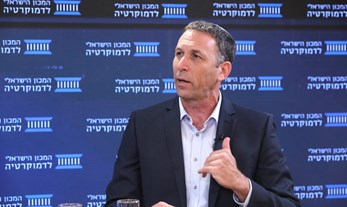
MK Matan Kahana: “The Chief Rabbis of the State of Israel should be Zionists”
The Israel Democracy Institute’s Biennial Statistical Report on Religion and State, which provides an overview of the latest data, trends and changes affecting the delicate balance between religion and state in Israeli society, was published today at IDI’s annual conference on Religion and State.
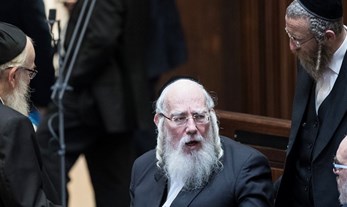
The War that Never Was
Written By: Eliyahu Berkovits
Notwithstanding the drama related to the question of whether the ultra-Orthodox Ashkenazi parties will continue to run together in the current election, there are voices within these communities that might render this arrangement unacceptable in the near future.
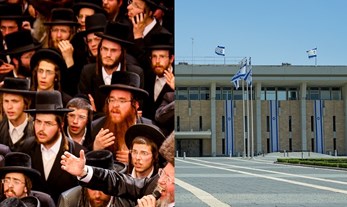
Inaugural Biennial Statistical Report on Religion and State in Israel
Written By: Dr. Ariel Finkelstein, Ayala Goldberg, Adv. Shlomit Ravitsky Tur-Paz
IDI’s inaugural Biennial Statistical Report on Religion and State was published ahead of the annual conference organized by the Religion and State Program in the Joan and Irwin Jacobs Center for Shared Society.

Election Campaign Advances from the Public Purse
Written By: Dr. Assaf Shapira
The current campaign finance system in Israel incentivizes existing parties and creates a closed club where its difficult for new parties to compete. How can the system be reformed?

Time for a Historic Deal on Religion and State
Written By: Prof. Benjamin Porat
On questions of religion and state the tensions between the centralized and decentralized approaches can be misleading and creative rethinking might provides opportunities for achieving new agreements and a more balanced reality

Will There Be Public Transportation for Secular Jews on Shabbat?
Written By: Prof. Daniel Statman
Is the insistence on preventing public transportation on Shabbat for those who would use it a lost cause - and should it even be a cause at all?
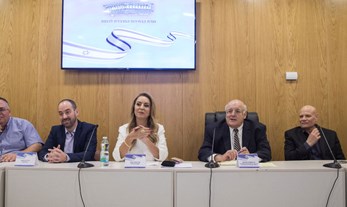
Disqualification of Knesset Lists and Candidates: Q&A
Written By: Prof. Yuval Shany, Dr. Amir Fuchs
Disqualifying candidates and lists for the Knesset violates one of the most fundamental democratic rights, the right to vote and to be elected. Therefore, it must be done with the utmost care, judgment and objectivity. Who can reject candidates and lists for the Knesset, and on what is the criteria? IDI experts answer these questions.
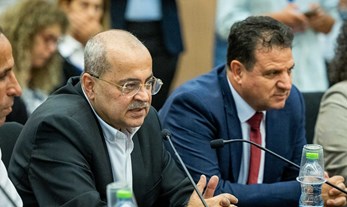
Ideology isn’t a Dirty Word
Written By: Dr. Muhammed Khalaily
The disintegration of the Joint List is arousing diametrically opposite reactions from the two big blocs of the Israeli political spectrum. How will this new political reality play out in the upcoming elections?
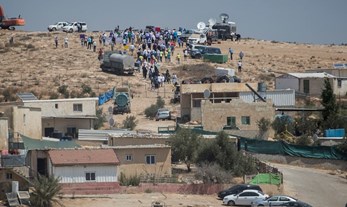
Democracy for All
Written By: Dr. Muhammed Khalaily
Democracy is not just majority rule, but ensuring that all segments of society are provided with the opportunity to take part in a free and fair political process. For Israel, this means ensuring that the Bedouin population has equal opportunity to place their vote in the upcoming election.
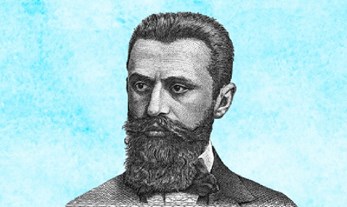
Reimagining Zionism for the 21st Century
Written By: Adv. Shlomit Ravitsky Tur-Paz
Based on her address to a special event in Basel, Switzerland, marking the 125th anniversary of the first Zionist Congress, Shlomit Ravitsky Tur-Paz, calls for today’s generation to view Zionism not only as a vehicle for building a state, but also for enhancing and enriching Israeli society.

Where are Haredim Headed? Towards Isolation or Integration?
Written By: Dr. Gilad Malach
125 years ago, Herzl failed to convince ultra-Orthodox leadership to join the Zionist movement, and while their leadership did sign the Declaration of Independence in 1948, they Haredim remained in their “enclave” communities. Now, if modern-day Israel is to continue to thrive, integration of the ultra-Orthodox is crucial

Israel Only Parliamentary Democracy With MPs Serving on Central Election Committee
Written By: Dr. Dana Blander
The study, by Dr. Dana Blander, finds that Israel is the only country where sitting members of parliament serve as members of the body that administers and oversees the elections, without any threshold conditions. The members of Knesset and the other members that are party representatives sitting on the Central Election Committee have the authority to make consequential decisions regarding to the election they themselves are usually competing in - including disqualifying lists and the candidates running against them in the election.
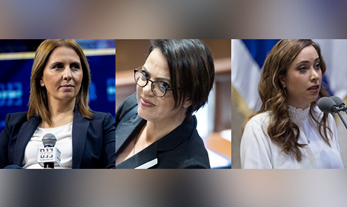
Reserved Candidate Slots for Women: A Tool for Improving Society or a Double-Edged Sword?
Written By: Prof. Gideon Rahat, Dr. Chen Friedberg
The dramatic differences among the different parties in terms of women’s representation in realistic candidate slots raise the question of what has gone wrong with the gender quota system. One simple recommendation for gradually increasing these quotas could radically change the situation and help ensure equitable representation for women

Only Half of Israelis Intend to Repeat Their 2021 Vote
Written By: Prof. Tamar Hermann, Dr. Or Anabi
Half of Israelis intend to vote for the same party they voted for in the previous (2021) elections and almost one-quarter of respondents say that they have not yet decided which party to vote for in the November 1st election

Jewish Israeli Voters Moving Right - Analysis
Written By: Dr. Or Anabi
New analysis by Dr. Or Anabi reveals a strong correlation between those who identify as left-wing and their votes for parties categorized on the left. The same applies to Israelis who places themselves in the ideological center. By contrast, the voting patterns of Israelis who identify on the right is more complicated with many voting for parties thought to fall outside of the traditionally-defined right-wing bloc.

How to Tackle Inflation
Written By: Prof. Karnit Flug
Former Governor of the Bank of Israel Prof. Karnit Flug, explains what lies behind the recent wave of the rise in prices; what is the main tool for dealing with inflation, and how this relates to wage agreements in the public-sector. She makes is clear that we are not back where we were in the 1980s, but, we must deal with the situation without delay.
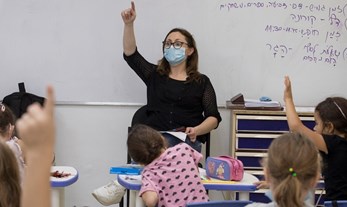
New School Year, Same Old Story
Written By: Dr. Tammy Hoffman
In order to make a fundamental change we must start treating teaching as a national-priority profession

Israelis Say That Food and Housing Are Highest Expenditures
Written By: Prof. Tamar Hermann, Dr. Or Anabi, Yaron Kaplan
A special IDI survey found that Israelis say that while there has been an 8.5% rise in their expenses over the past year, wages have remained stagnant – and even declined. The public is also split on which type of government after November’s election would deal best with the high cost of living.

Before the Next Round: Establishing Sound Procedures for National Security Decisions
Written By: Prof. Amichai Cohen
Operation Breaking Dawn was brief and successful, nevertheless the decision-making process for matters of national security must be reformed to deal also with worst-case scenarios
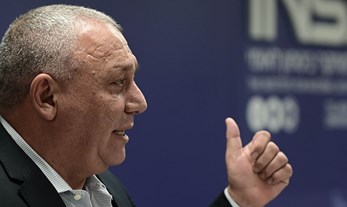
Generals in Israeli Politics
Written By: Prof. Ofer Kenig
Former IDF Chief of Staff Gadi Eisenkot’s decision to join Benny Gantz and Gideon Sa’ar’s new political framework is a part of a long-standing trend in which retired IDF chiefs of staff join the political system.
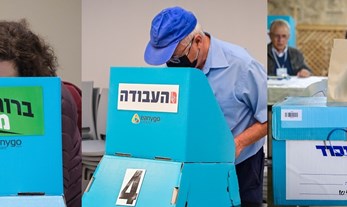
How do Israeli Parties Choose Their Candidates
Written By: Prof. Ofer Kenig
The election campaign for the 25th Knesset is in its early stages, and one of the key landmarks is September 15th when all the parties contending must submit their list of candidates.
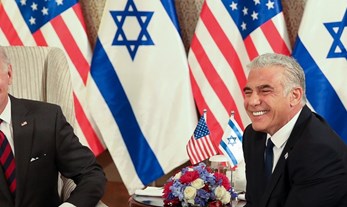
President Biden’s Visit, in Retrospect
Written By: Prof. Tamar Hermann, Dr. Or Anabi, Yaron Kaplan
After President Biden's visit to Israel, more Israelis are convinced of his commitment to ensuring Israel’s security when negotiating with Iran.

Israelis Say They Base Their Vote on Party’s Economic Platform
Written By: Prof. Tamar Hermann, Dr. Or Anabi, Yaron Kaplan
The Israeli Voice Index for July 2022 found that the main factor influencing Israelis’ consideration when voting is the party’s platform on economic issues and its plan for coping with the high cost of living (44%). 24% of respondents say that the party head is their top factor in deciding which slate to vote for
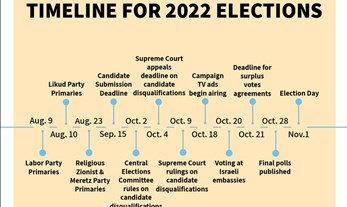
Elections 2022 Timeline
Written By: Prof. Ofer Kenig

How Many Followers Did Rabbi Weiss Really Have?
Written By: Eliyahu Berkovits
While its size may be small, the Edah Haredit ultra-Orthodox group has significant influence over the Haredi society as well as the general Israeli public.

Voting Patterns of Jewish Israelis in the March 2021 Elections by Religious Affiliation
Written By: Dr. Ariel Finkelstein
How much does religious affiliation influence the votes that Israelis cast in the ballot box? Central Bureau of Statistics data and Viterbi Center surveys are used to present a comprehensive picture.
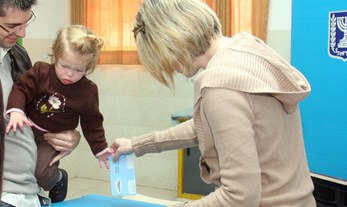
The Demographic Characteristics of Voters
Written By: Dr. Or Anabi
The data reveals that Israel’s political system is split by many overlapping divisions - along identity and status lines – making it is far more difficult to change voters’ positions and further contributing to the current political stalemate.
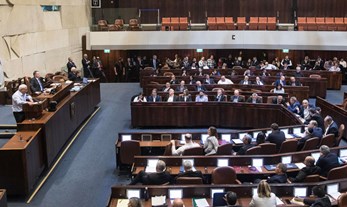
Who Does the Seat in Parliament Belong to The Party Faction or its Individual Member?
Written By: Dr. Assaf Shapira, Avital Friedman
Israel has a closed electoral system, so that on election day, the country’s citizens do not vote for individual representatives, but rather-for a list, which subsequently evolves into a faction in the Knesset. What does that mean in terms of balancing the power between the party and individual parliament members?
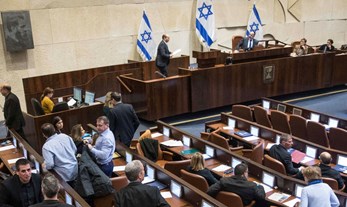
The 24th Knesset in Numbers
Written By: Dr. Chen Friedberg, Avital Friedman
The 24th Knesset has dispersed, around a year and a quarter since it was sworn in. The most prominent finding in the following review is that this Knesset continued the trend set by its predecessor: Both saw a dramatic increase in the number of private members’ bills put forward, and a dramatic reduction in the proportion of such bills that passed a third reading and became laws.

